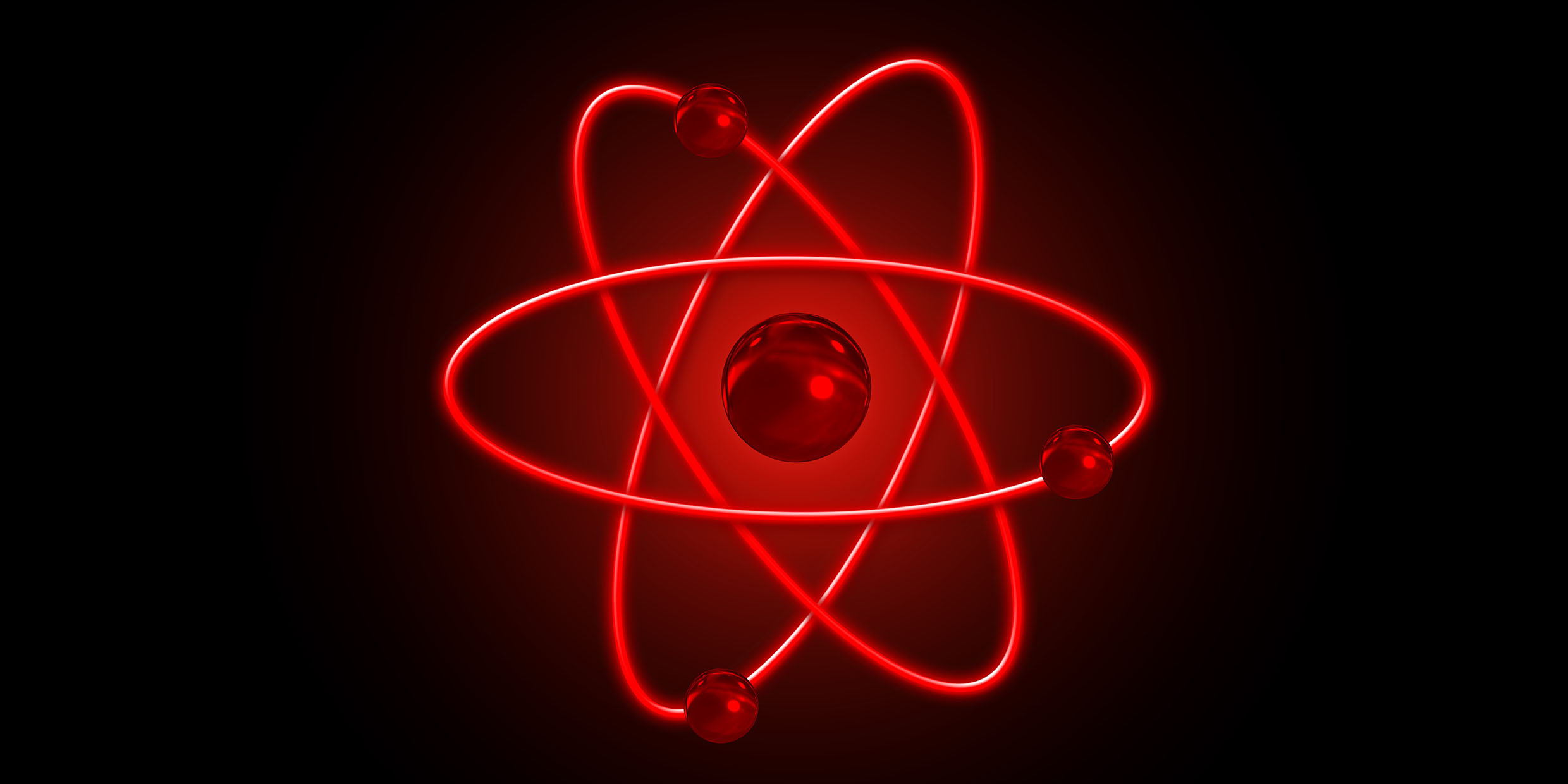Originally published 10 April 1989
In this day when everything seems to break down the day after the warranty expires, it would be nice to know that something lasts forever. Unfortunately, science seems determined to remove the last vestiges of permanence from the universe.
Stars burn out. Continents split and drift. Entire races of animals become extinct. Just ask the dinosaurs. Everywhere around us, or so it seems, atoms are falling apart — radon, uranium, strontium 90 — zapping us with radiation. There’s a hole in the ozone. Greenhouse warming promises to melt the polar icecaps. The Rockies will crumble, Gibraltar will tumble, they’re only made of clay, and — the song notwithstanding — not even love is here to stay.
Surely, something, somewhere endures forever?
How about the proton? Yes, the proton — that little basic building-block of matter, the most solid and sensible particle in the universe. Someday our sun will die, swelling up to become a red giant and then collapsing heavily upon itself, but the sun’s protons will stay intact. Someday you and I will turn to dust, but every proton in our bodies (oh, roughly 10 billion billion billion) will find some other home.
Around since the beginning
If we understand these things rightly, all protons in the universe today have been around since the first fraction of a second after Creation, when the fundamental particles of matter condensed from the flash of the Big Bang. Not long ago physicists thought protons would last till the end of time. Now, they’re not so sure. The immortality of the proton has been called into question.
In underground caverns all around the world, in Japan, Europe, the United States, and the Soviet Union, physicists are watching for protons to disintegrate. In this country, the most impressive “watch-a-proton-die” experiment is half-a-mile underground in a salt mine near Cleveland. A huge rectangular cavern is filled with 8,000 tons of water, watched over by 2,048 super-sensitive electronic eyes. If a proton falls apart, releasing a spray of fast-moving parts, flashes of light in the tank will announce the event.
But why should protons die? The answer basically is this: Why not? Permanence is out of fashion in science today. According to the new dispensation, we live in a raging Heraclitean fire; everything is in flux.
There are good theoretical reasons to believe that protons have finite lifetimes. Physicists, in imitation of nature, can produce a whole zoo of exotic particles — muons, mesons, pions, and so on — and all of them quickly decay into less massive components. A muon, for example, falls apart into three particles — an electron, a neutrino, and an antineutrino. Certain things, of course, remain constant in any such disintegration, such as the total mass-energy and electric charge.
It is possible to imagine acceptable ways a proton might decay — into a positron and a pion, for example. And if nature has no good reason for preventing it, then why doesn’t it happen? Why doesn’t the whole world of ordinary matter just disintegrate into a shower of parts?
The theoretical physicists who are seeking to unify the forces of nature (with so-called “grand unified theories,” or GUTs) think they have the answer. Their theories predict that a proton should live 10 thousand billion billion billion years, give or take a factor of 10. That’s long even by Methuselah’s standard, but it’s not eternal. Certainly it’s long enough to keep the universe from prematurely falling apart.
Getting to the nub of it all
If protons last so long — vastly longer than the present age of the universe — then why should we care whether or not they are immortal? The answer has to do with the GUTs of the universe. If we can determine the lifetime of the proton, we will be closer to answering the oldest questions of all: How did the universe begin and how will it end?
So physicists have gone underground to wait and watch for decaying protons — underground to keep cosmic rays (high-energy particles from space) from fooling their detectors. The predicted proton lifetime of 10 thousand billion billion billion years is an average, so if you have 10 thousand billion billion billion protons one of them should die every year. To get a worthwhile count, however, one needs even more protons than that, which is the reason for the 8,000 tons of water.
So far, not one proton has been observed falling apart. Maybe the proton has a longer lifetime than some people thought. Or maybe it’s immortal. Either way, physicists would like to know.
Questions about the beginning and end of the universe have always occupied human minds. Curiously, one of the best ways to answer these questions today is to go down in a deep hole and watch big tanks of water. Of course, one doesn’t actually watch; the human eye is not nearly sensitive enough to see a proton decay. The eyes that watch are electronic, and the brains that analyze what the eyes see are computers. But the brains that ask the questions — the great and deep philosophical questions about where the universe came from and how it will end — are human.
Meanwhile, don’t bet on protons lasting forever. If you need something absolutely enduring in your life, put your money on electrons. Apparently electrons don’t fall apart because there are no lighter particles with negative charge, and therefore no way for the total charge in a disintegration to stay constant. For the time being at least, it seems that electrons are here to stay.
To date, despite decades of experimentation, there has not yet been any successful observation of proton decay. ‑Ed.



